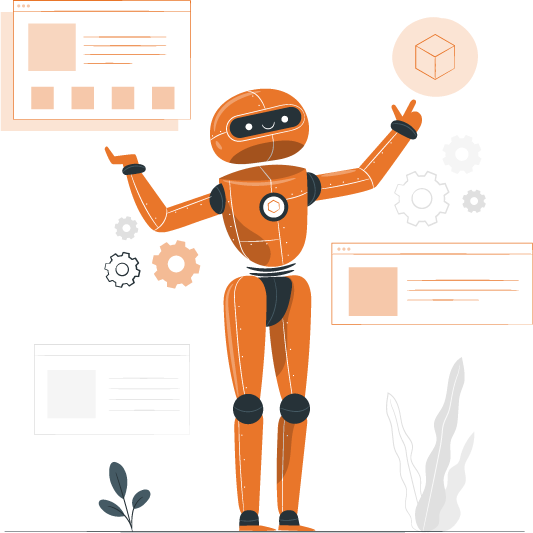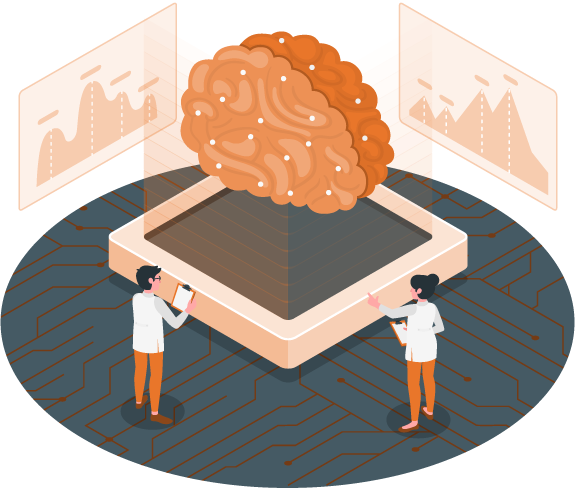Im letzten Blogbeitrag zum Thema Ethische Softwareentwicklung haben wir uns bereits angeschaut, in welchem Verhältnis Software und deren Entwicklung zu der Ethik steht. Aufgrund der rapiden Integration von Technologie und Software in allen Bereichen unserer Gesellschaft wurde schnell ersichtlich, dass die ethische Dimension bei der Entwicklung nicht zu vernachlässigen ist. Um das Risiko von Missbrauch, Betrug oder anderen negativen Auswirkungen zu verringern, braucht es klare ethische Richtlinien, die den Softwareentwickler/innen als Orientierungshilfe dienen, um ihnen nicht die gesamte Verantwortung aufzubürden, die mit der Entwicklung von Software einhergeht. Obwohl bereits einige Kodexe in der Welt der IT existieren, benötigt es eine komplexe Auseinandersetzung und Integration in Gesellschaft, Wirtschaft und Gesetz.

Eine besonders große Herausforderung hinsichtlich der Integration ethischer Werte und Prinzipien bietet dabei die Entwicklung der Künstliche Intelligenz (KI). Künstliche Intelligenz, auch Artifizielle Intelligenz (AI), beschäftigt sich mit der Automatisierung intelligenten Verhaltens und dem maschinellen Lernen - also mit den Methoden, die es einem Computer ermöglichen, Aufgaben zu lösen, die bei menschlicher Lösung Intelligenz erfordern. Obwohl KI ein Teilbereich der Informatik ist, erfordert die Entwicklung Wissen aus der Biologie, Computerlinguistik, Maschinenbau, Psychologie und den Neurowissenschaften.
Die Anwendung bzw. der Einsatz von KI bringt viele Vorteile mit sich - er verspricht Unternehmen eine höhere Effizienz bei den Arbeitsabläufen und somit eine Kosteneinsparung sowie Privatpersonen eine höhere Lebensqualität und mehr Zeit, da Roboter und Maschinen monotone und repetitive Aufgaben übernehmen. Anwendung findet die KI bereits in der Medizin, wenn Roboter bei komplexen Operationen sowie bei der Auswertung von medizinischen Ergebnissen, beispielsweise in der Krebserkennung, unterstützend wirken. Auch in der Automobilindustrie übernehmen Roboter einen großen Teil der Fertigung und tragen so zu fehlerfreien und effizienteren Arbeitsabläufen bei. Des Weiteren können Systeme, die auf KI beruhen, bereits im Bewerbungsprozess eine Vorauswahl treffen, Kundenanfragen kategorisieren und teils Beratungen durchführen oder auch bestimmen, welche Person einen Kredit erhält und welche nicht.
Die Möglichkeiten, die der Einsatz und die Weiterentwicklung von KI mit sich bringen, verfügen über großes Potenzial, welches noch keineswegs erschöpft ist und von vielen positiv bewertet wird. Dennoch existieren einige Bedenken, Unsicherheit und mangelndes Vertrauen in die zukunftsweisende Technologie der KI-Systeme.
Einige Studien belegen, dass die Akzeptanz und das gesellschaftliche Vertrauen in KI weltweit nicht besonders gut ausgeprägt sind. Eine Umfrage im Auftrag des Weltwirtschaftsforums, an der mehr als 20.000 Menschen in Deutschland, China, USA, Saudi-Arabien und weiteren 23 Ländern teilgenommen haben, verdeutlicht dies: Die Frage "Sorgen Sie sich um den Einsatz von Künstlicher Intelligenz?" wurde von 41 Prozent der Befragten bejaht, so eine dpa-Meldung auf Zeit Online. Für ein Verbot des Einsatzes von Künstlicher Intelligenz sprachen sich sogar 19 Prozent der Befragten aus.
Doch welche Bedenken führen zu einer solch hohen Ablehnung der KI? Ein großer Faktor ist der Kontrollmangel der Anwender der KI, welcher bei zunehmend eigenständigem Handeln der KI-Systeme folgt sowie die daraus entstehende Frage nach der Verantwortlichkeit im Schadensfall. Auch existieren Risiken hinsichtlich der Datensicherheit und Privatsphäre - denn für das Training selbstlernender Algorithmen braucht es große Datenmengen, und ein Datengebrauch kann auch einen Datenmissbrauch zur Folge haben.
Vor allem aber die ungenügende Transparenz der Vorgehensweisen von KI-Systemen bringt große Kritik mit sich. Da es sich bei neuen Technologien, die auf maschinellem Lernen basieren, häufig um eine Art Black Box handelt, sind die Entscheidungen oft schwer nachvollziehbar. Künstliche Intelligenz erkennt innerhalb von Daten nur Muster und Strukturen, welche nicht immer zwingend in einem Kausalzusammenhang stehen müssen, und somit existiert laut Kritikern/innen eine erhöhte Gefahr der Diskriminierung. Ein Beispiel hierfür wäre eine Ungleichbehandlung bei der Kreditwürdigkeit einer Person, denn aus den Informationen, mit denen die KI trainiert wird, würde sich ergeben, dass weiße Männer durchschnittlich über ein höheres Einkommen verfügen als Frauen, Menschen mit Behinderung oder dunkelhäutige Menschen. Ebenso könnte die Verwendung fehlerhafter und/oder veralteter Daten, welche die Entscheidungsgrundlage darstellen, weitreichende und schwerwiegende Folgen haben.

Aufgrund ihrer besonderen Eigenschaften stellen KI-Systeme aus ethischer Perspektive eine Herausforderung dar und stehen häufig in der Kritik. Um Akzeptanz und Vertrauen in der Gesellschaft zu erhöhen, ist es gerade bei Künstlicher Intelligenz höchst wichtig und notwendig, ethische Richtlinien zu definieren und zu implementieren. Dabei müssen diese nicht nur unternehmensintern Berücksichtigung finden und transparent nach außen dargestellt werden, sondern auch gesellschaftsübergreifend diskutiert werden.
Prinzipien wie Qualitätssicherung im Hinblick auf die verarbeiteten Daten, Schutz der Privatsphäre der Betroffenen, Zuverlässigkeit der verwendeten Technologien, Nachvollziehbarkeit der Ergebnisfindung und -überprüfung sowie die Festlegung der Verantwortlichkeiten müssen in einem geeigneten Rahmen verankert werden, damit selbstlernende Systeme wie KI zu einer wertorientierten Gesellschaftsentwicklung beitragen können.
Quellen: www.plattform-lernende-systeme.de, www.wikipedia.org, www.wirtschaftslexikon.gabler.de, www.srd-rechtsanwaelte.de, www.zeit.de, www.informatik-aktuell.de, www.retresco.de
Ethische Softwareentwicklung